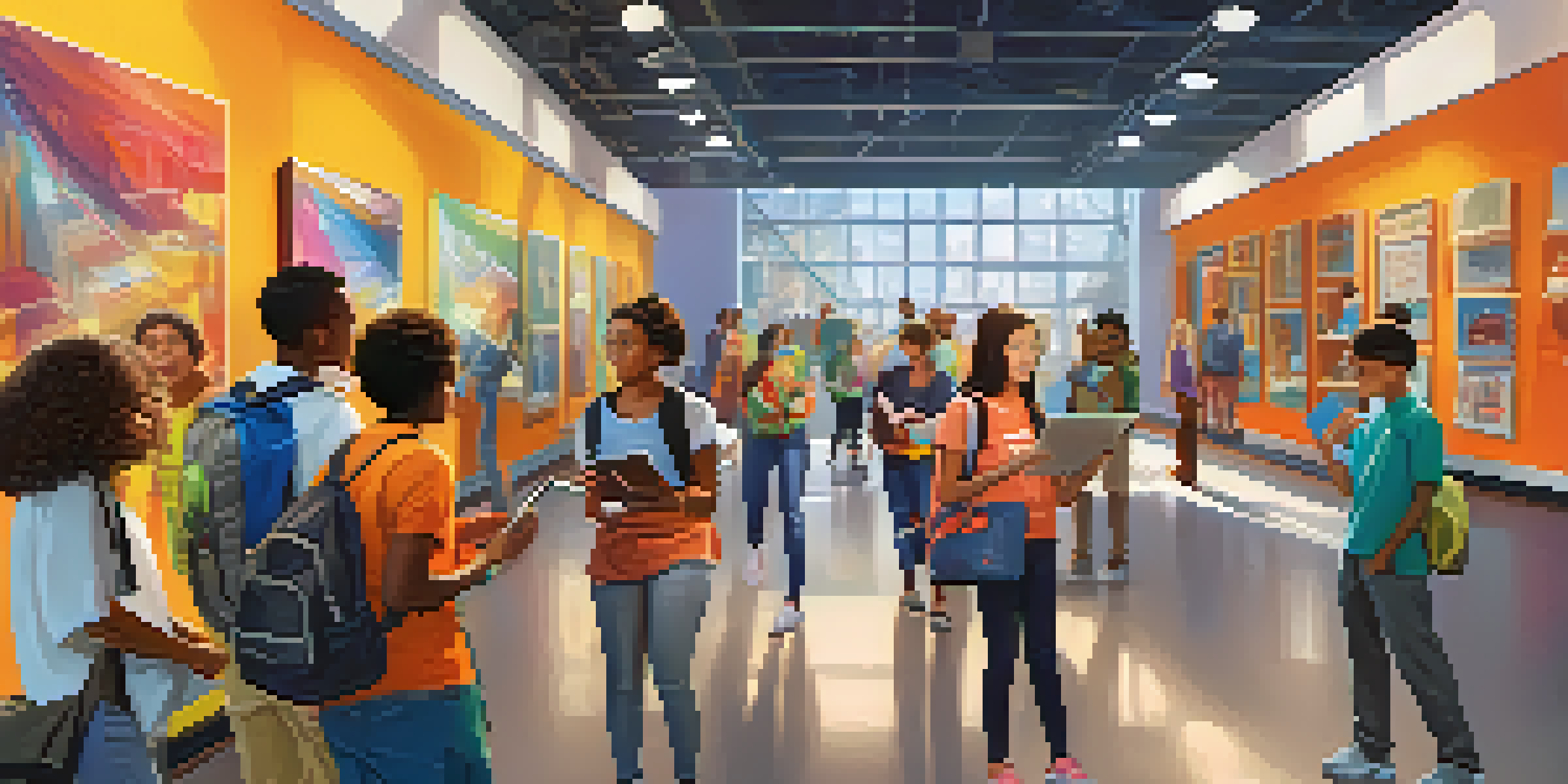How Educational Travel Enhances Learning for Young Minds

Understanding Educational Travel and Its Importance
Educational travel refers to trips that are designed to foster learning experiences beyond the classroom. This type of travel can include field trips, study abroad programs, or cultural exchanges. By stepping into new environments, young learners are exposed to diverse cultures and perspectives, which enhances their understanding of the world.
Travel is the only thing you buy that makes you richer.
In essence, educational travel is not just about visiting new places; it’s about creating memorable experiences that enrich knowledge. For example, a trip to a historical landmark can ignite a child's interest in history in ways that textbooks simply cannot. Such hands-on learning allows students to connect with their studies on a more personal level.
Moreover, these experiences often spark curiosity and encourage lifelong learning. When students see and interact with the subjects they study, they are more likely to retain information and develop a genuine passion for learning. Educational travel, therefore, serves as a powerful tool for cognitive and emotional growth.
Building Confidence Through New Experiences
Traveling to new places can be a transformative experience for young minds, helping them build confidence. Navigating unfamiliar environments and interacting with people from diverse backgrounds can challenge students to step outside their comfort zones. This newfound confidence can translate into various aspects of their lives, from academics to social interactions.

For instance, imagine a shy student who participates in a homestay program abroad. Engaging with a local family and experiencing their culture firsthand can empower that student to express themselves more freely. These everyday challenges, although daunting at first, can lead to significant personal growth.
Educational Travel Enhances Learning
Educational travel immerses students in new environments, fostering hands-on learning and a deeper connection to their studies.
Additionally, educational travel encourages problem-solving skills as students face and overcome obstacles. Whether it's figuring out how to communicate in a foreign language or planning a day’s itinerary, these experiences teach resilience and adaptability—traits that are invaluable in today’s ever-changing world.
Fostering Cultural Awareness and Sensitivity
One of the most enriching aspects of educational travel is the exposure to different cultures. Young travelers have the opportunity to learn about customs, traditions, and lifestyles that differ from their own. This exposure fosters cultural awareness and sensitivity, which are crucial for developing global citizens.
The world is a book, and those who do not travel read only one page.
For example, participating in a local festival during a trip can provide insights into a community’s values and beliefs. Such experiences help students appreciate diversity and cultivate empathy towards others. Understanding that there are various ways to live and think can reshape a young person's worldview.
Moreover, this cultural immersion encourages students to reflect on their own identities. As they learn about others, they also gain a deeper understanding of themselves and their place in the world. This duality enriches their learning experience and makes them more open-minded individuals.
Enhancing Social Skills and Teamwork
Travel often involves group activities, which can significantly enhance social skills for young travelers. Whether it’s collaborating on a project during a study trip or participating in team-building exercises, students learn the importance of teamwork. These interactions help develop communication skills and foster friendships that can last a lifetime.
Consider a school trip where students have to work together to complete a scavenger hunt in a museum. This not only encourages collaboration but also allows them to learn from each other’s strengths and ideas. Such experiences reinforce the value of working together towards a common goal.
Building Confidence Through Travel
Traveling exposes young learners to new experiences, helping them build confidence and essential problem-solving skills.
Furthermore, traveling with peers teaches conflict resolution skills. Disagreements can arise during group travel, and how students navigate these situations can be a valuable learning opportunity. By practicing patience and understanding, they develop skills that are essential for both personal and professional relationships.
Inspiring Curiosity and Lifelong Learning
Educational travel serves as a catalyst for inspiring curiosity in young minds. When students encounter new environments, their natural inquisitiveness often sparks a desire to learn more. This enthusiasm for exploration can lead to deeper research and a passion for learning that extends beyond the trip itself.
For instance, visiting a science museum can ignite a love for technology and innovation. After such experiences, students might find themselves reading more about scientific advancements or pursuing related projects. This connection reinforces the idea that learning can happen anywhere, not just in a classroom setting.
Additionally, travel encourages students to ask questions and seek answers actively. Engaging with local experts or participating in workshops can transform their perception of learning into an adventure. This mindset fosters a love for knowledge that can last a lifetime.
Developing Critical Thinking and Problem-Solving Skills
Educational travel often requires students to think critically and solve problems on the go. Whether it's navigating public transportation in a foreign city or planning a budget for meals and activities, these experiences teach resourcefulness. Such skills are essential not just in travel, but in everyday life.
For example, a student may face a language barrier while trying to order food in another country. Finding creative ways to communicate—like using gestures or translation apps—teaches them to think outside the box. These challenges encourage adaptive thinking and resilience.
Fostering Cultural Awareness
Experiencing different cultures through travel cultivates empathy and a broader worldview in students.
Moreover, experiencing real-world scenarios helps students apply their classroom knowledge in practical ways. This bridge between theory and practice fosters a deeper understanding of concepts and prepares them for future challenges. Developing these skills during travel can make a significant difference in their academic and personal lives.
Encouraging Environmental Awareness and Responsibility
Traveling can also promote environmental awareness among young travelers. As students explore different ecosystems, they become more conscious of the impact humans have on the environment. Educational travel often includes discussions about conservation and sustainable practices, which can inspire responsible behavior.
For instance, visiting a national park can provide firsthand experiences of nature's beauty and fragility. Learning about conservation efforts can motivate students to advocate for environmental issues back home, fostering a sense of responsibility for the planet. This connection to nature can instill a lifelong commitment to sustainability.

Additionally, engaging in community service during travel, such as beach clean-ups or wildlife conservation projects, allows students to take an active role in making a difference. These experiences not only enhance learning but also empower young minds to contribute positively to the world around them.